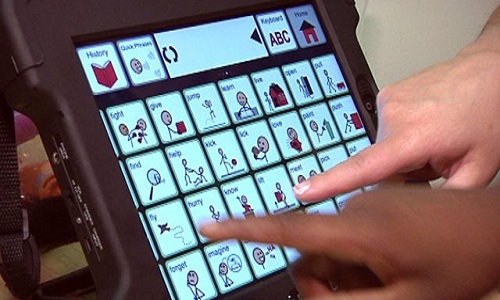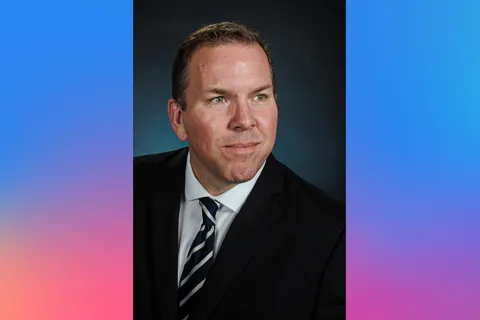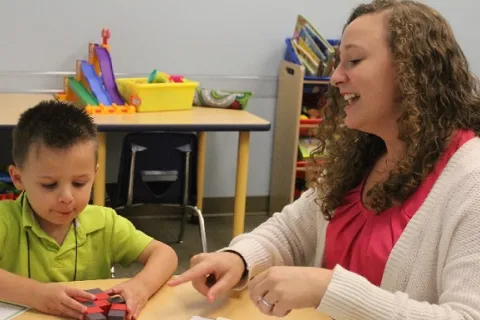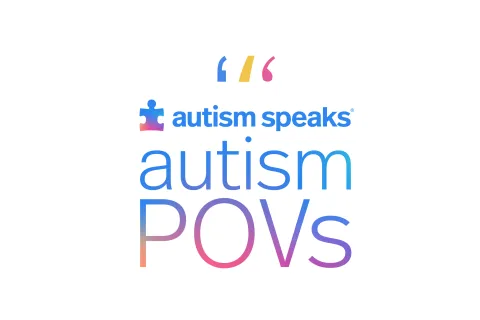Why has this grade schooler with autism started whispering?
“Our 11 year old son is a minimally verbal boy on the autism spectrum. He can say a few words including ‘papa’ and ‘mama.’ But in the last year, he suddenly started only whispering or mouthing these words. I can see his lips move. But very seldom can we get him to speak loud enough for people to hear. Otherwise, he seems to be developing quite well. Why is this happening? Can anybody help?”

Today’s “Got Questions?” response is from speech-language pathologist Barbara Braddock. Dr. Braddock practices at the SSM Cardinal Glennon Medical Center of the Saint Louis University School of Medicine. The center is one of 14 sites in the Autism Speaks Autism Treatment Network (ATN).
Editor’s note: The following information is not meant to diagnose or treat and should not take the place of personal consultation, as appropriate, with a qualified healthcare professional and/or behavioral therapist.
Thanks for reaching out with your question. Many minimally verbal children with autism spectrum disorder (ASD) develop idiosyncratic communication habits and ways of expressing themselves. It is difficult to say why your son developed this new habit of only whispering or mouthing words. But there are a number of possibilities that I’d encourage you to explore with a speech-language pathologist who is experienced in working with children who have ASD.
Autism clinics such as those in the ATN have such experts on staff. You can locate the ATN center nearest you here. You may also be able to access these services through your son’s school as part of his Individualized Education Program (IEP).
The importance of good hearing
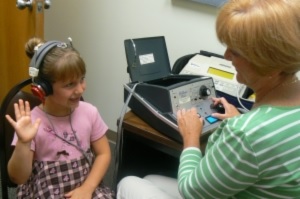
To start, the speech-language pathologist should explore the possibility of hearing issues. Good hearing is important so that your son can effectively self-monitor the loudness of his voice and the voices of others. Has your son passed a recent hearing screen at school or during a check-up? If not, the speech therapist may recommend your son see an audiologist for a hearing test. The good news is that many audiologists are skilled at testing hearing in nonverbal and minimally verbal children.
Also see “Can hearing problems contribute to autism-related speech delays?”
Evaluating intent
In addition, it’s important for the speech-language pathologist to determine if your son is producing words such as “papa” and “mama” with communication intent. In other words, does he use his words to intentionally signal that he wants you, sees you, etc? Many children with autism repeat words without grasping their meaning. Speech-language pathologists experienced with autism know how to determine whether a child is using gestures, words and other vocalizations in purposeful ways.
This determination is important because, if your son is merely repeating words – rather than using words to communicate – the decrease in his vocal volume may stem from a lack of desire or interest in speaking. If this is the case, his communication may be best enhanced through augmentative and alternative communication. This can include strategies to increase the use of meaningful gestures, manual signs, pictures, objects, assisted communication devices and/or written words for purposeful communication. Such a treatment program should be customized closely to your child’s personal needs and motivations.
As many readers of this website know, research has shown that – when used as part of an effective behavioral therapy program – speech-generating devices can encourage minimally verbal children with autism to develop their spoken language. The most important piece of the puzzle is that your son learns to use conventional symbols to communicate with intent to meet his communication needs with other people.
See “Speech devices can help build language in schoolchildren with autism”.
Exploring other possibilities
The specialist will also evaluate the overall quality of your son’s voice. It may suggest, for example that he lacks sufficient air pressure or energy behind his voice or that his vocal folds may be weak or strained. If this is the case, your son may be able to move his mouth as if to articulate speech sounds, but unable to produce the vocal cord vibrations needed for clearly audible speech.
To produce a high quality voice, the vocal folds must fully open and close. By contrast, for whispering, our vocal folds tend to remain in a partially open position. If the speech-language pathologist suspects this is the case, he or she will likely recommend that your son sees an otolaryngologist – a physician who specializes in ear, nose and throat issues. The otolaryngologist may use a special camera to look at your son’s vocal folds in action.
Another possibility is that your son has developed an over-sensitivity to how his voice feels and sounds. As you likely know, hypersensitivity issues are common among children – and adults – with autism. Here again, a speech language pathologist experienced with autism will understand how to explore this possibility by using various activities to gain insights into your son’s whispered speech patterns.
For instance, the speech-language pathologist may see what activities or contexts elicit louder voicing from your son. Does he vocalize at a louder level when bouncing on a ball or running around? Sometimes vigorous physical activity encourages louder voicing by increasing muscle tone and excitement.
Voice treatment
These thorough evaluations may suggest that your son would benefit from treatment to increase his vocal volume. There are several approaches that have been used with some success in adults with Parkinson’s disease and children with spastic cerebral palsy. I don’t know of any studies directly testing these methods in minimally verbal children with autism. But they may help.
Home exercises
There are also some voice exercises you can try at home with your son – though again, I recommend doing so under the guidance of a professional. For instance, there are number of free or low-cost apps that you can use to provide your son with visual feedback to help him “see” and monitor his voice volume. These programs measure sound pressure level and generate a number, graph or other interactive feedback on your smart phone or pad.
To use such an app, ask your son to repeat a word or words into the microphone on your smart device. Then show him the graphic feedback so he can “see” the volume. Praise him for participating in the exercise, and encourage him to “dial up” the volume on the screen. You might also want to introduce a reward board or other token system to encourage his progress.
Rather than recommend any one app, I encourage you to get a recommendation from the speech-language pathologist who works with your son. I hope these suggestions prove helpful. Please let us know how you and your son are doing in the comment section below or by emailing us again at gotquestions@autismspeaks.org.
Got Questions for our behavioral and medical experts?
Send them to GotQuestions@AutismSpeaks.org.

